In a recent episode of the BBC World Service’s The Global Story, host Lucy Hockings explored the pressing question of which nation boasts the most effective education system. Featuring insights from BBC journalist Sean Coughlan and Professor John Jerrim from University College London, the episode illuminated the dynamics of international educational rankings and the challenges faced by students worldwide.
Global Rankings Highlight Successes
The podcast delves into the competitive nature of global education rankings, with countries striving to showcase their academic prowess. Notably, schools in Asia frequently dominate these rankings. Singapore and China have consistently achieved high scores in international assessments, particularly in the Programme for International Student Assessment (PISA) tests. The most recent PISA results, released in 2019, showed that Singapore ranked first in reading, mathematics, and science, with an impressive average score of 569 in reading, far outperforming the OECD average of 487.
China’s four participating provinces—Beijing, Shanghai, Jiangsu, and Zhejiang—also exhibited remarkable results, particularly in mathematics, where they achieved an average score of 591. Hong Kong consistently ranks among the top performers as well, showcasing strong educational outcomes across various subjects. South Korea, another high-performing nation, has a reputation for its rigorous education system, with students scoring an average of 514 in reading and 526 in mathematics in the latest PISA assessments.
Honorable Mentions: Estonia and Canada
The episode also highlights Estonia and Canada as exemplary models of educational success. Estonia is recognized for its inclusive approach, emphasizing equity in education and ensuring that all students, regardless of background, have access to high-quality learning opportunities. The country’s educational reform has led to high results in PISA, with a notable score of 503 in mathematics, reflecting the effectiveness of its policies. Canada has been praised for its commitment to inclusivity, with high graduation rates across diverse student populations, showcasing a model that effectively supports marginalized communities.
Addressing Barriers to Education
Despite these successes, the podcast emphasizes significant barriers that hinder educational access for many children globally. Issues such as poverty, climate change, and armed conflict create substantial obstacles. UNICEF reports that over 258 million children worldwide are out of school, with girls and children in conflict-affected areas disproportionately affected. The speakers discuss how these barriers not only impede enrollment but also negatively impact the quality of education received by those who do attend school.

Learning from Successful Systems
The conversation underscores the importance of learning from countries with effective educational systems. By examining the policies and strategies implemented in high-performing nations, other countries can adopt best practices to enhance their own educational outcomes. This includes addressing issues of equity, providing adequate support for students with diverse needs, and investing in teacher training and resources.
Possible Inadequacies in Assessment Models
While PISA and similar assessments offer valuable insights into educational performance, there is an ongoing debate about their limitations in capturing authentic learning experiences. Critics argue that these tests primarily focus on standardized knowledge and skills, potentially overlooking critical thinking, creativity, and social-emotional learning—essential components of a well-rounded education. As educators and policymakers strive to improve educational systems, it is crucial to consider broader measures of success that reflect the diverse capabilities and needs of students.
The Transformative Power of Education
Throughout the episode, the transformative power of education is highlighted. Access to quality education is framed as a fundamental right that can lead to improved economic prospects and social mobility. According to a World Bank report, each additional year of schooling can increase a person’s earnings by approximately 10%, emphasizing the long-term benefits of investing in education.
A Call to Action
The podcast concludes with a call for collective action to overcome the challenges faced by children in accessing education. The speakers stress the need for governments, educators, and communities to collaborate in addressing systemic issues that prevent children from benefiting from educational opportunities.
As the global community continues to grapple with educational disparities, the insights shared in this episode serve as a reminder of the critical importance of ensuring that every child, regardless of their circumstances, has the chance to succeed through quality education.
For those interested in exploring the full discussion and gaining deeper insights into global education systems, the episode is available on the BBC World Service website: Which country educates its children best?.
School System Service Providers that may be of interest:
Get a special discount by quoting code AISLMALL during CHECKOUT.
21C Learning - Consulting Services in Technology
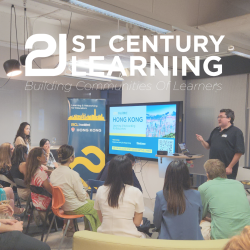
Founded in 2014, 21C Learning (21CL) organizes top-tier annual conferences and online events that align with its mission of “Building Communities of Learners”. We helps K-12 schools improve their tech infrastructure and teaching practices. Our services include strategic plan reviews, onsite visits, stakeholder interviews, and surveys on tech readiness. We also offer fractional CIO/Tech Director services for cost-effective guidance and support.
3Education: Smart Queuing System
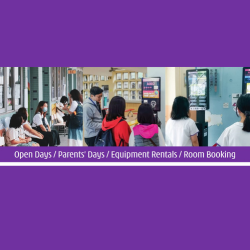
3Education is committed to assisting schools in adapting technology to cultivate self-learning ability for the new generation. We are all here to help teachers in achieving their educational goals. Empowered by 3 Hong Kong’s strongest 5G network, we provide a wide range of teaching and learning solutions to help students develop their strengths.
CENTURY Tech – Teaching and Learning Platform
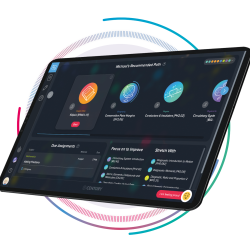
CENTURY is an award-winning teaching and learning platform for primary and secondary schools, colleges and universities. Using learning science, artificial intelligence and neuroscience, CENTURY creates constantly adapting pathways for students and powerful assessment data for teachers.
Destiny Library Manager
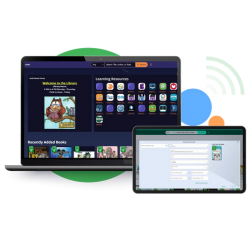
Follett Destiny® Library Manager, a leading software for libraries, simplifies administrative tasks while fostering a love of reading and discovery. Users enjoy a student-friendly interface and engaging experience as they explore and access exciting new resources.
Instructure – Educational Software
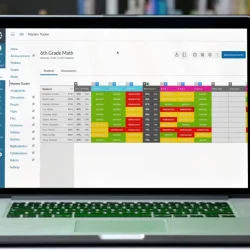
Instructure Holdings, Inc. is an educational technology company based in Salt Lake City, Utah, United States. Instructure offers a variety of systems for K-12 schools, including Canvas (Cloud-based learning management system-LMS), Mastery Connect (digital assessment management system), Impact (Streamlined Edtech Adoption for K-12) and analytics tools.
Novalearn - Simplified School Management
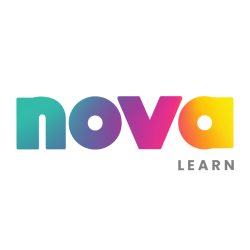
Novalearn Limited is an EdTech company transforming education by seamlessly integrating machine learning, studio-produced edutainment, and quality STEAM education aligned with international K-12 curricula.
Moments365 - Parent-School Communication
Moments365 is an interactive hub for K12 international schools and parents, enabling real-time sharing of students’ progress. Integrated with WeChat and Teams, it enhances communication and parental involvement, driving schools towards innovative, connected smart campuses.
Otus: Learning Management System
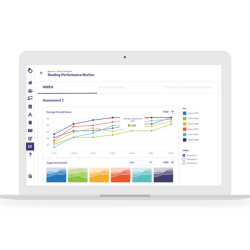
Otus provides educators with a platform that offers data-driven insights, collaborative learning, personalized professional development plans, feedback and reflection tools, and access to both internal and external professional development resources. This comprehensive suite of tools empowers educators with the knowledge and skills to excel in various areas.
PowerSchool – Software & Cloud Based Solutions

PowerSchool is a leading provider of cloud-based software for K-12 education in North America. Its mission is to power the education ecosystem with unified technology that helps educators and students realize their full potential, in their way. PowerSchool connects students, teachers, administrators, and parents, with the shared goal of improving student outcomes. From the office to the classroom to the home, it helps schools and districts efficiently manage state reporting and related compliance, special education, finance, human resources, talent, registration, attendance, funding, learning, instruction, grading, assessments and analytics in one unified platform
Renaissance Learning – School System
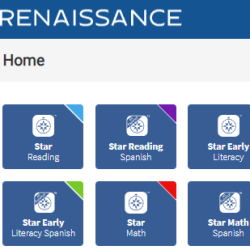
Renaissance Learning, Inc. is a software as a service and learning analytics company that makes cloud-based, Pre-K–12 educational software and adaptive assessments. Renaissance employs about 1,000 employees in nine U.S. cities and subsidiaries in Canada, the United Kingdom, Korea, and Australia.
SAM Learning
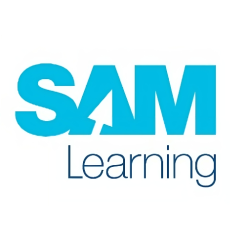
SAM Learning is the only online learning platform that provides students, parents and teachers access to thousands of learning activities for all major GCSE, IGCSE and KS3 subjects. Engineered by A.I., SAM Learning suggests 30 minutes of adapted work, every week to every student (Weekly Challenges in core subjects) and is independently proven to make students achieve on average two GCSE grades better.








